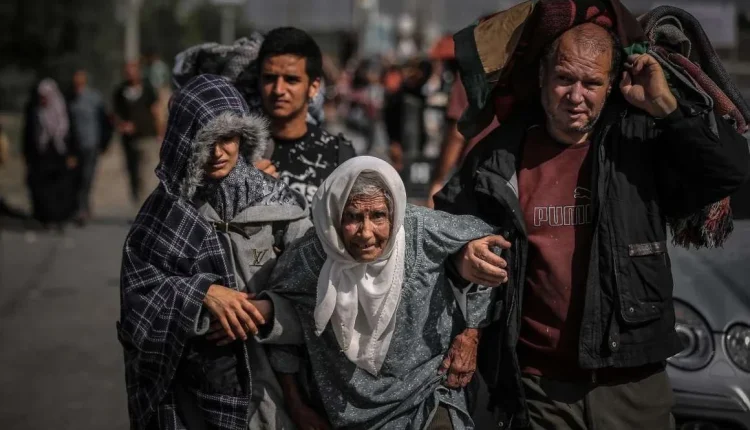Intel organization issues fact sheet revealing catastrophic conditions in Gaza Strip amid enemy aggression
The International Organization for Supporting the Rights of the Palestinian People (Hashd) issued on Saturday a detailed fact sheet highlighting the difficult humanitarian conditions in the Gaza Strip during 2025 as a result of the siege and repeated Israeli aggression against the Strip.
The paper, monitored by the Yemeni News Agency (Saba), provides a comprehensive analysis of the economic, social, and cultural crisis facing more than two million Palestinians.
The paper, prepared by researcher Muhammad Aslim, confirms that the Gaza Strip’s economy is facing an unprecedented collapse, with unemployment reaching catastrophic levels of 85% among the workforce, while approximately 73% of Palestinian families live below the poverty line.
The paper revealed that 70% of Gaza’s population suffers from food insecurity as a result of the recent Israeli aggression, which led to the destruction or closure of approximately 42,000 economic establishments, resulting in the loss of more than 150,000 job opportunities and a significant increase in unemployment rates, especially among young people.
It noted that the tragic conditions caused by the Israeli enemy’s forced displacement policy have displaced more than two million people within the Gaza Strip, representing approximately 80% of Gaza’s population, and forced them to live in temporary shelters lacking the most basic necessities of life.
It reported that the health system in the Gaza Strip has suffered a major setback with the loss of more than 1,500 medical workers, at a time when the Strip is suffering from a severe shortage of medicines and medical supplies.
The paper shows that approximately 90% of children in Gaza suffer from severe psychological disorders due to the ongoing bombing and forced displacement.
In the field of education, approximately 95% of schools and universities in Gaza have been destroyed or damaged, depriving hundreds of thousands of students of their right to education.
In higher education, more than 388 universities and colleges have been closed or destroyed, preventing approximately 785,000 university students from completing their studies. Meanwhile, Palestinian cultural heritage has been subjected to systematic practices aimed at erasing national identity through the destruction of archaeological sites and cultural heritage.
Cultural and artistic life in the Gaza Strip has been extensively affected, with more than 208 cultural and educational sites destroyed or damaged, and cultural and community centers shutting down.
Hashed emphasized that the Gaza Strip is experiencing a complex humanitarian crisis due to the enemy’s war of extermination and starvation, including a complete collapse of economic, social, and cultural life. It warned that the continued siege and aggression constitute a clear humanitarian crime.
The Commission called on the international community to take urgent action to halt the Zionist aggression on Gaza, lift the siege, and provide the necessary support for the reconstruction of the Strip and the provision of urgent humanitarian aid.
It emphasized the need to empower local civil society organizations to fulfill their role in documenting violations and protecting the rights of Palestinian civilians.
Hashd also stressed the importance of mobilizing Arab and regional support to strengthen the resilience of Palestinian civilians and protect their identity under these harsh conditions.

